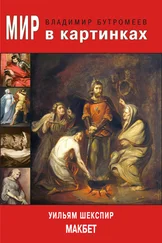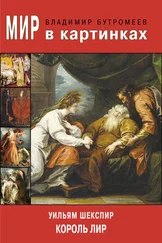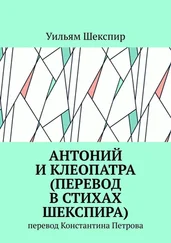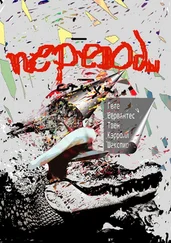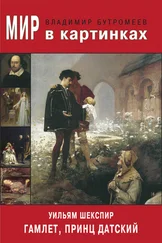Уильям Шекспир - Love's Labour's Lost
Здесь есть возможность читать онлайн «Уильям Шекспир - Love's Labour's Lost» — ознакомительный отрывок электронной книги совершенно бесплатно, а после прочтения отрывка купить полную версию. В некоторых случаях можно слушать аудио, скачать через торрент в формате fb2 и присутствует краткое содержание. Издательство: Иностранный паблик, Жанр: Европейская старинная литература, Драматургия, foreign_dramaturgy, на английском языке. Описание произведения, (предисловие) а так же отзывы посетителей доступны на портале библиотеки ЛибКат.
- Название:Love's Labour's Lost
- Автор:
- Издательство:Иностранный паблик
- Жанр:
- Год:неизвестен
- ISBN:нет данных
- Рейтинг книги:3 / 5. Голосов: 1
-
Избранное:Добавить в избранное
- Отзывы:
-
Ваша оценка:
- 60
- 1
- 2
- 3
- 4
- 5
Love's Labour's Lost: краткое содержание, описание и аннотация
Предлагаем к чтению аннотацию, описание, краткое содержание или предисловие (зависит от того, что написал сам автор книги «Love's Labour's Lost»). Если вы не нашли необходимую информацию о книге — напишите в комментариях, мы постараемся отыскать её.
Love's Labour's Lost — читать онлайн ознакомительный отрывок
Ниже представлен текст книги, разбитый по страницам. Система сохранения места последней прочитанной страницы, позволяет с удобством читать онлайн бесплатно книгу «Love's Labour's Lost», без необходимости каждый раз заново искать на чём Вы остановились. Поставьте закладку, и сможете в любой момент перейти на страницу, на которой закончили чтение.
Интервал:
Закладка:
For every man with his affects is born,
Not by might mast'red, but by special grace.
If I break faith, this word shall speak for me:
I am forsworn on mere necessity.
So to the laws at large I write my name; [Subscribes]
And he that breaks them in the least degree
Stands in attainder of eternal shame.
Suggestions are to other as to me;
But I believe, although I seem so loath,
I am the last that will last keep his oath.
But is there no quick recreation granted?
KING. Ay, that there is. Our court, you know, is haunted
With a refined traveller of Spain,
A man in all the world's new fashion planted,
That hath a mint of phrases in his brain;
One who the music of his own vain tongue
Doth ravish like enchanting harmony;
A man of complements, whom right and wrong
Have chose as umpire of their mutiny.
This child of fancy, that Armado hight,
For interim to our studies shall relate,
In high-born words, the worth of many a knight
From tawny Spain lost in the world's debate.
How you delight, my lords, I know not, I;
But I protest I love to hear him lie,
And I will use him for my minstrelsy.
BEROWNE. Armado is a most illustrious wight,
A man of fire-new words, fashion's own knight.
LONGAVILLE. Costard the swain and he shall be our sport;
And so to study three years is but short.
Enter DULL, a constable, with a letter, and COSTARD
DULL. Which is the Duke's own person?
BEROWNE. This, fellow. What wouldst?
DULL. I myself reprehend his own person, for I am his Grace's
farborough; but I would see his own person in flesh and
blood.
BEROWNE. This is he.
DULL. Signior Arme- Arme- commends you. There's villainy
abroad;
this letter will tell you more.
COSTARD. Sir, the contempts thereof are as touching me.
KING. A letter from the magnificent Armado.
BEROWNE. How low soever the matter, I hope in God for high
words.
LONGAVILLE. A high hope for a low heaven. God grant us
patience!
BEROWNE. To hear, or forbear hearing?
LONGAVILLE. To hear meekly, sir, and to laugh moderately; or,
to
forbear both.
BEROWNE. Well, sir, be it as the style shall give us cause to
climb
in the merriness.
COSTARD. The matter is to me, sir, as concerning Jaquenetta.
The manner of it is, I was taken with the manner.
BEROWNE. In what manner?
COSTARD. In manner and form following, sir; all those three: I
was
seen with her in the manor-house, sitting with her upon the
form,
and taken following her into the park; which, put together,
is in
manner and form following. Now, sir, for the manner- it is
the
manner of a man to speak to a woman. For the form- in some
form.
BEROWNE. For the following, sir?
COSTARD. As it shall follow in my correction; and God defend
the
right!
KING. Will you hear this letter with attention?
BEROWNE. As we would hear an oracle.
COSTARD. Such is the simplicity of man to hearken after the
flesh.
KING. [Reads] 'Great deputy, the welkin's vicegerent and sole
dominator of Navarre, my soul's earth's god and body's
fost'ring
patron'-
COSTARD. Not a word of Costard yet.
KING. [Reads] 'So it is'-
COSTARD. It may be so; but if he say it is so, he is, in
telling
true, but so.
KING. Peace!
COSTARD. Be to me, and every man that dares not fight!
KING. No words!
COSTARD. Of other men's secrets, I beseech you.
KING. [Reads] 'So it is, besieged with sable-coloured
melancholy, I
did commend the black oppressing humour to the most wholesome
physic of thy health-giving air; and, as I am a gentleman,
betook
myself to walk. The time When? About the sixth hour; when
beasts
most graze, birds best peck, and men sit down to that
nourishment
which is called supper. So much for the time When. Now for
the
ground Which? which, I mean, I upon; it is ycleped thy park.
Then
for the place Where? where, I mean, I did encounter that
obscene
and most prepost'rous event that draweth from my snow-white
pen
the ebon-coloured ink which here thou viewest, beholdest,
surveyest, or seest. But to the place Where? It standeth
north-north-east and by east from the west corner of thy
curious-knotted garden. There did I see that low-spirited
swain,
that base minnow of thy mirth,'
COSTARD. Me?
KING. 'that unlettered small-knowing soul,'
COSTARD. Me?
KING. 'that shallow vassal,'
COSTARD. Still me?
KING. 'which, as I remember, hight Costard,'
COSTARD. O, me!
KING. 'sorted and consorted, contrary to thy established
proclaimed
edict and continent canon; which, with, O, with- but with
this I
passion to say wherewith-'
COSTARD. With a wench.
King. 'with a child of our grandmother Eve, a female; or, for
thy
more sweet understanding, a woman. Him I, as my ever-esteemed
duty pricks me on, have sent to thee, to receive the meed of
punishment, by thy sweet Grace's officer, Antony Dull, a man
of
good repute, carriage, bearing, and estimation.'
DULL. Me, an't shall please you; I am Antony Dull.
KING. 'For Jaquenetta- so is the weaker vessel called, which I
apprehended with the aforesaid swain- I keep her as a vessel
of
thy law's fury; and shall, at the least of thy sweet notice,
bring her to trial. Thine, in all compliments of devoted and
heart-burning heat of duty,
DON ADRIANO DE ARMADO.'
BEROWNE. This is not so well as I look'd for, but the best that
ever I heard.
KING. Ay, the best for the worst. But, sirrah, what say you to
this?
COSTARD. Sir, I confess the wench.
KING. Did you hear the proclamation?
COSTARD. I do confess much of the hearing it, but little of the
marking of it.
KING. It was proclaimed a year's imprisonment to be taken with
a
wench.
COSTARD. I was taken with none, sir; I was taken with a damsel.
KING. Well, it was proclaimed damsel.
COSTARD. This was no damsel neither, sir; she was a virgin.
KING. It is so varied too, for it was proclaimed virgin.
COSTARD. If it were, I deny her virginity; I was taken with a
maid.
KING. This 'maid' not serve your turn, sir.
COSTARD. This maid will serve my turn, sir.
KING. Sir, I will pronounce your sentence: you shall fast a
week
with bran and water.
COSTARD. I had rather pray a month with mutton and porridge.
KING. And Don Armado shall be your keeper.
My Lord Berowne, see him delivered o'er;
And go we, lords, to put in practice that
Which each to other hath so strongly sworn.
Exeunt KING, LONGAVILLE, and DUMAIN
BEROWNE. I'll lay my head to any good man's hat
These oaths and laws will prove an idle scorn.
Sirrah, come on.
COSTARD. I suffer for the truth, sir; for true it is I was
taken
with Jaquenetta, and Jaquenetta is a true girl; and therefore
welcome the sour cup of prosperity! Affliction may one day
smile
again; and till then, sit thee down, sorrow.
Exeunt
SCENE II. The park
Enter ARMADO and MOTH, his page
ARMADO. Boy, what sign is it when a man of great spirit grows
melancholy?
MOTH. A great sign, sir, that he will look sad.
ARMADO. Why, sadness is one and the self-same thing, dear imp.
MOTH. No, no; O Lord, sir, no!
ARMADO. How canst thou part sadness and melancholy, my tender
juvenal?
MOTH. By a familiar demonstration of the working, my tough
signior.
ARMADO. Why tough signior? Why tough signior?
MOTH. Why tender juvenal? Why tender juvenal?
ARMADO. I spoke it, tender juvenal, as a congruent epitheton
appertaining to thy young days, which we may nominate tender.
MOTH. And I, tough signior, as an appertinent title to your old
time, which we may name tough.
ARMADO. Pretty and apt.
MOTH. How mean you, sir? I pretty, and my saying apt? or I apt,
and
my saying pretty?
ARMADO. Thou pretty, because little.
MOTH. Little pretty, because little. Wherefore apt?
ARMADO. And therefore apt, because quick.
MOTH. Speak you this in my praise, master?
ARMADO. In thy condign praise.
MOTH. I will praise an eel with the same praise.
ARMADO. that an eel is ingenious?
MOTH. That an eel is quick.
ARMADO. I do say thou art quick in answers; thou heat'st my
blood.
MOTH. I am answer'd, sir.
ARMADO. I love not to be cross'd.
MOTH. [Aside] He speaks the mere contrary: crosses love not
him.
ARMADO. I have promised to study three years with the Duke.
MOTH. You may do it in an hour, sir.
ARMADO. Impossible.
MOTH. How many is one thrice told?
ARMADO. I am ill at reck'ning; it fitteth the spirit of a
tapster.
MOTH. You are a gentleman and a gamester, sir.
ARMADO. I confess both; they are both the varnish of a complete
man.
MOTH. Then I am sure you know how much the gross sum of
deuce-ace
amounts to.
ARMADO. It doth amount to one more than two.
MOTH. Which the base vulgar do call three.
ARMADO. True.
MOTH. Why, sir, is this such a piece of study? Now here is
three
studied ere ye'll thrice wink; and how easy it is to put
'years'
to the word 'three,' and study three years in two words, the
dancing horse will tell you.
ARMADO. A most fine figure!
MOTH. [Aside] To prove you a cipher.
ARMADO. I will hereupon confess I am in love. And as it is base
for
a soldier to love, so am I in love with a base wench. If
drawing
my sword against the humour of affection would deliver me
from
the reprobate thought of it, I would take Desire prisoner,
and
ransom him to any French courtier for a new-devis'd curtsy. I
think scorn to sigh; methinks I should out-swear Cupid.
Comfort
me, boy; what great men have been in love?
MOTH. Hercules, master.
ARMADO. Most sweet Hercules! More authority, dear boy, name
more;
and, sweet my child, let them be men of good repute and
carriage.
MOTH. Samson, master; he was a man of good carriage, great
carriage, for he carried the town gates on his back like a
porter; and he was in love.
ARMADO. O well-knit Samson! strong-jointed Samson! I do excel
thee
in my rapier as much as thou didst me in carrying gates. I am
in
love too. Who was Samson's love, my dear Moth?
MOTH. A woman, master.
ARMADO. Of what complexion?
MOTH. Of all the four, or the three, or the two, or one of the
four.
ARMADO. Tell me precisely of what complexion.
MOTH. Of the sea-water green, sir.
ARMADO. Is that one of the four complexions?
MOTH. As I have read, sir; and the best of them too.
ARMADO. Green, indeed, is the colour of lovers; but to have a
love
of that colour, methinks Samson had small reason for it. He
surely affected her for her wit.
MOTH. It was so, sir; for she had a green wit.
ARMADO. My love is most immaculate white and red.
MOTH. Most maculate thoughts, master, are mask'd under such
colours.
ARMADO. Define, define, well-educated infant.
MOTH. My father's wit my mother's tongue assist me!
ARMADO. Sweet invocation of a child; most pretty, and
pathetical!
MOTH. If she be made of white and red,
Her faults will ne'er be known;
For blushing cheeks by faults are bred,
And fears by pale white shown.
Then if she fear, or be to blame,
By this you shall not know;
For still her cheeks possess the same
Which native she doth owe.
A dangerous rhyme, master, against the reason of white and
red.
ARMADO. Is there not a ballad, boy, of the King and the Beggar?
MOTH. The world was very guilty of such a ballad some three
ages
since; but I think now 'tis not to be found; or if it were,
it
would neither serve for the writing nor the tune.
ARMADO. I will have that subject newly writ o'er, that I may
example my digression by some mighty precedent. Boy, I do
love
that country girl that I took in the park with the rational
hind
Costard; she deserves well.
MOTH. [Aside] To be whipt; and yet a better love than my
master.
ARMADO. Sing, boy; my spirit grows heavy in love.
MOTH. And that's great marvel, loving a light wench.
ARMADO. I say, sing.
MOTH. Forbear till this company be past.
Интервал:
Закладка:
Похожие книги на «Love's Labour's Lost»
Представляем Вашему вниманию похожие книги на «Love's Labour's Lost» списком для выбора. Мы отобрали схожую по названию и смыслу литературу в надежде предоставить читателям больше вариантов отыскать новые, интересные, ещё непрочитанные произведения.
Обсуждение, отзывы о книге «Love's Labour's Lost» и просто собственные мнения читателей. Оставьте ваши комментарии, напишите, что Вы думаете о произведении, его смысле или главных героях. Укажите что конкретно понравилось, а что нет, и почему Вы так считаете.


